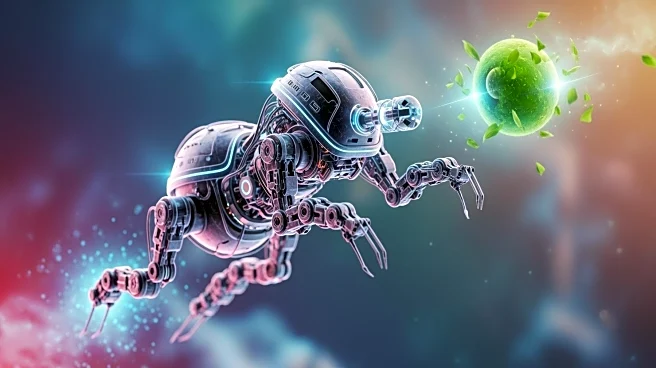What's Happening?
Researchers at the University of North Carolina at Chapel Hill have developed microscopic soft robots, known as 'DNA flowers,' that can change shape and behavior in response to their environment. These
robots are made from crystals combining DNA and inorganic materials, allowing them to fold and unfold rapidly. The DNA within these structures acts like a program, enabling the robots to react to environmental changes such as acidity levels. This innovation could lead to applications in medicine, such as targeted drug delivery and biopsies, as well as environmental cleanup efforts.
Why It's Important?
The development of these dynamic microscopic robots represents a significant advancement in the field of materials science, bridging the gap between living systems and machines. In medicine, these robots could revolutionize drug delivery by providing targeted treatment, reducing side effects, and improving patient outcomes. Additionally, their potential use in environmental cleanup could offer a sustainable solution to pollution, as these robots can release cleaning agents and then dissolve harmlessly. This technology also holds promise for data storage, offering a more efficient and eco-friendly method of storing vast amounts of information.
What's Next?
While the technology is still in early testing phases, researchers are optimistic about its future applications. The next steps involve further testing and refinement of these robots to ensure their safety and efficacy in real-world scenarios. As the technology progresses, it could lead to the development of swallowable or implantable devices for medical use, as well as scalable solutions for environmental challenges. Continued research and collaboration with industry partners will be crucial in bringing these innovations to market.











